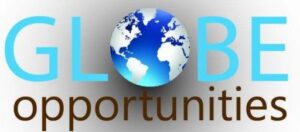
Deadline: August 21, 2023
Meet scientists, experts and explorers who are working for nature—and find your place in caring for the planet. Participants join live online workshops and networking sessions, explore curated digital content, and create a community-based conservation project to practice research, storytelling and presentation skills. We are committed to creating cohorts of young people from diverse backgrounds, beliefs and cultures so that participants can develop a network of peers and professionals to support their journey to becoming an informed changemaker for nature.
Freshwater is vital for life on Earth, for people, species, and places across the natural world. Yet, in many places around the globe, our management of freshwater resources is becoming unsustainable. Understanding the interconnectedness and complexity of local and regional freshwater issues is critical to living sustainably on Earth.
In this remote Externship, externs will translate global freshwater conservation issues into a local context, make them relevant and accessible to their communities, and offer solutions to local or regional problems.
This Externship is a 10-hour-per-week fully remote experience where all meetings and events are recorded.
Externship starts September 11, 2023: This remote Externship will last 8 weeks.
Payment Award:
$500 Stipend: Students who successfully complete their externships will receive their educational stipends at the end of the program.
Eligibility:
-
Young people ages 18-25 from around the globe interested in learning about introductory conservation approaches and exploring a career in conservation.
-
No prior work experience or coursework in conservation or environmental topics is required.
The Experience:
-
Learn the basics of various freshwater conservation issues and approaches through resources and case studies provided by the National Geographic Society and
The Nature Conservancy;
- Learn and apply primary and secondary research methods to investigate ongoing conservation efforts and identify freshwater conservation issues in your local area or region;
-
Speak to local leaders, conservationists, and community members to gain an understanding of freshwater issues and their impact on the local community;
-
Conduct a landscape/gap analysis to identify gaps in freshwater conservation efforts in your area and propose solutions to issues you may uncover;
-
Gain skills in written and visual storytelling to communicate freshwater issues and how your community can help.



